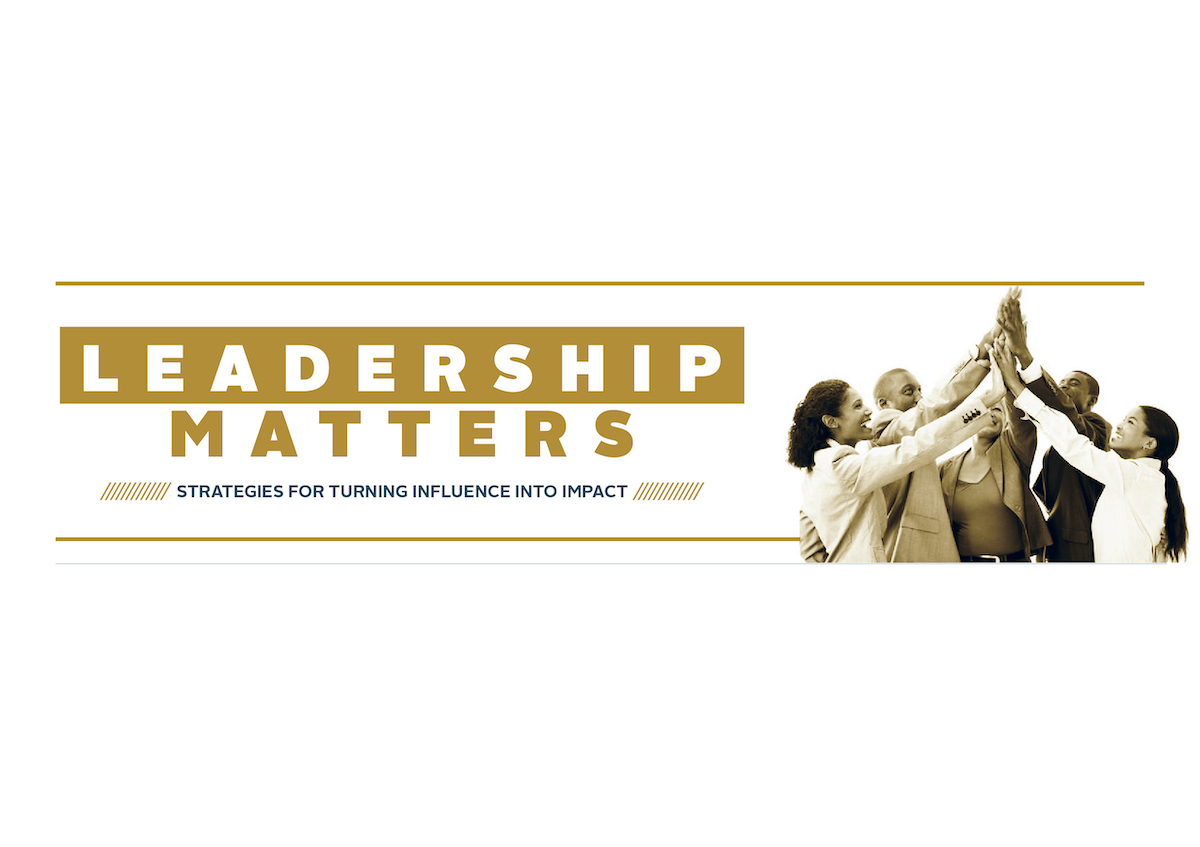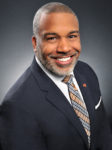
Download “Making Black Lives Matter”
Leadership-Matters-Making-Black-Lives-Matter-01-final-11-17-2020.pdf – Downloaded 16 times – 538.10 KBThe path forward is forged by leaders willing to collaborate on strategic, long-term solutions, walking in lockstep toward eradicating every iteration of racism in our boardrooms, classrooms, and workplaces.
-Adam C. Walker
Now, more than ever, we are, indeed, in a battle for the soul of this country.
With each day that passes, the “Black Lives Matter” Movement takes on new meaning and importance. For so many years, and for so many people, Black lives did not matter. It still feels that way today.
As CEO of my own company, I have been at a loss for words to adequately express the outrage and sadness many of us have felt about the events over the past six months. We remember George Floyd, Breonna Taylor, Ahmaud Arbery, Jacob Blake, and countless others who didn’t make the headlines.
The series of protests and unrest in cities around the country and the world have been a poignant response to systemic racism and police brutality. The prophetic irony of demonstrations against police violence that were met with police violence has captivated the world’s attention.
Thousands, from Berlin and Brazil to Amsterdam and Australia, have taken to the streets, toppling statues and demanding justice. Finally, Black lives would matter. The movement had found its moment.
As I reflect on what’s going on now, I realize the world is watching us, the United States. The time is now for clear, courageous, and constructive leadership.
The world is waiting for leaders to show up, step up, and speak up. Unlike the delayed responses by public officials, Black CEOs are now sharing their experiences with racism and the feelings of fear and frustration. Though just 1 percent of CEOs in the S&P 500 are black and 37 percent of these firms have no black board members, we are still compelled to leverage our positions and use our platforms to demand justice and help tip the scales of justice toward progress.
From the top floor to the shop floor at Summit Packaging Solutions, we have a clear vision for diversity. When I took the helm as CEO in 2014, I committed to rebuilding the company culture with a fresh focus on the core values of doing business with integrity and providing an unparalleled customer experience. I set out to transform our company’s role in the community by championing programs focused on corporate social responsibility, the environment, and education.
As CEO of a 100% black-owned business, a leader in the manufacturing industry, and a certified Minority Business Enterprise (MBE) through the National Minority Supplier Development Council, I am committed to supporting – and even championing efforts that lead to the following reforms:
- Legislation
Demanding Congress to immediately pass the Justice in Policing Act of 2020 that in part prohibits federal, state, and local law enforcement from racial, religious and discriminatory profiling; bans chokeholds and ‘no knock’ warrants; limits the transfer of military grade equipment to local officials; and, make lynching a federal crime. - Accountability
Requiring police officers to report or intervene any time they see unauthorized use of force, such as requiring police departments to provide body cameras for all officers. - Economic Redevelopment
Supporting minority-owned businesses, public policies and private sector economic redevelopment that revitalizes blighted neighborhoods ravaged by unemployment, divestment, and devaluation. - Equity Investments
Creating true shared ownership by supporting Black business and financing structures that remedy the systemic and historical exclusion of wealth creation by specifically providing access capital, not just working capital (debt), but equity investments to help MBEs grow and thrive. - Corporate Incentives
Providing incentives to corporations through tax credits to diversify their supply chains by providing contracts to minority business firms and investing more dollars into their supplier diversity programs. These minority businesses create jobs, wealth and help kickstart the multiplier effect in distressed communities.
As CEO of a successful company, I could easily lay in the cut, and let the events of the world remain in the background. But, this time, for me, it is personal.
I had tucked away – or perhaps buried – the harrowing details of an encounter with police on a rainy Saturday night during the fall of 1991 in Homestead, Pennsylvania, a suburb just outside of Pittsburgh where I grew up. It is the same Homestead that gave birth to the 11-time Negro National League champions, the Homestead Grays, a powerhouse baseball team that was created by Black mill workers.
I had just returned home from a season playing football for the San Francisco 49ers. My cousin and I packed up my midnight blue, Toyota Supra Turbo with gold BBS wheels and drove across the country. I wanted to spend some time reconnecting with my tribe, reflecting on the things that made me most proud, and figuring out how to achieve the goals that were still on my heart to achieve.
My cousin and I decided to meet up and take the Supra to the club. I picked out my best fall COOGI® sweater and hit the door. We were clean, ready to have a good time. Life in recent weeks had been rough. I needed this time out.
Along the drive to pick up my cousin, I saw a couple of female friends walking together in the neighborhood, in the rain. One of them was my cousin’s neighbor, and I offered her a ride. In an instant, the night took a drastic, unexpected turn. Flashing police lights eerily lit up the streets of the quiet neighborhood that we called home.
Officers pounced on the women, assuming they were engaging in drug activity. My first instinct was to seek help, but one of the officers ordered me to stop, and as he wrestled one young lady to the ground, he announced on the radio: “We got him!” In the blink of an eye, four squad cars surrounded my blue Toyota Supra with California plates. I don’t know how they managed to pull me out of the car, at gunpoint, slam me to the ground while in a headlock, handcuff me and place a knee to the back of my neck. The officer yelled again, “We got him!”
The quiet streets started to swell with onlookers, screaming for the officers to stop because surely, if they did, then they would recognize me. The crowd yelled: “Don’t you know who that is? That’s Adam Walker.”
The officers didn’t care about the crowd’s protest. They acted with impunity, and despite evidence that contradicted their assumptions, they persisted.
My success on and off the playing field did not matter to them. What was initially an innocent day turned into a fight for my life and my reputation.
You see that day my race overshadowed any of my achievements in the officers’ minds. Neither my stature as an NFL running back nor the incredulity of the crowd that knew my name mattered.
In the eyes of law enforcement, I was just another black man that “fit the description” of someone they were allegedly looking for a few streets over. It did not matter to them that I was taller, bigger, or whatever than their suspect.
None of those material facts mattered.
They had their guy. I was guilty until proven innocent.
Now, as a CEO, I have a platform to make a difference. That’s why my five-point plan is just one of the ways CEOs, like me, must provide leadership. We can no longer stay silent. We must use our spheres of power and influence to make change happen – not just talk about it.
I understand how it feels to agonize over business decisions that carry drastic ripple effects. However, despite this fear of getting it wrong, the only thing wrong to do at this moment is to do nothing.
The path forward is forged by leaders willing to collaborate on strategic, long-term solutions, walking in lockstep toward eradicating every iteration of racism in our boardrooms, classrooms, and workplaces.
At Summit, I am committed to doing what it takes to fight injustices and create opportunities for Black businesses and our community.
I invite my peer CEOs to join me in making change in 3 key areas:
- Address supply chain and distribution inequities
- Examine internal corporate structures
- Develop more diverse decision makers, C-suites and Boards of Directors
I challenge you to find your place in the fight, so the noble ideals upon which this nation was founded can be a reality now, and for generations to come.

 Former NFL running back and Super Bowl XXIX champion ADAM C. WALKER took the helm as CEO of Summit Packaging Solutions in 2014 and set in motion an accelerated growth strategy that combined investing in technology and innovation with expanding into new markets. An award-winning supply chain partner that provides end-to-end contract packaging solutions for brands known around the world, Summit brings innovative design and manufacturing expertise to solve the toughest packaging challenges for products, including high-end cosmetics, pharmaceuticals, food & beverage, and sensitive materials. Summit serves a variety of industries that provide a broad range of packaging and supply chain solutions. The company works across three locations throughout the country to solve operational challenges, reduce environmental impact, and protect the products that clients bring to the market.
Former NFL running back and Super Bowl XXIX champion ADAM C. WALKER took the helm as CEO of Summit Packaging Solutions in 2014 and set in motion an accelerated growth strategy that combined investing in technology and innovation with expanding into new markets. An award-winning supply chain partner that provides end-to-end contract packaging solutions for brands known around the world, Summit brings innovative design and manufacturing expertise to solve the toughest packaging challenges for products, including high-end cosmetics, pharmaceuticals, food & beverage, and sensitive materials. Summit serves a variety of industries that provide a broad range of packaging and supply chain solutions. The company works across three locations throughout the country to solve operational challenges, reduce environmental impact, and protect the products that clients bring to the market.
For more information, visit: www.1teamsummit.com
